SUMMARY
This is AI generated summarization, which may have errors. For context, always refer to the full article.
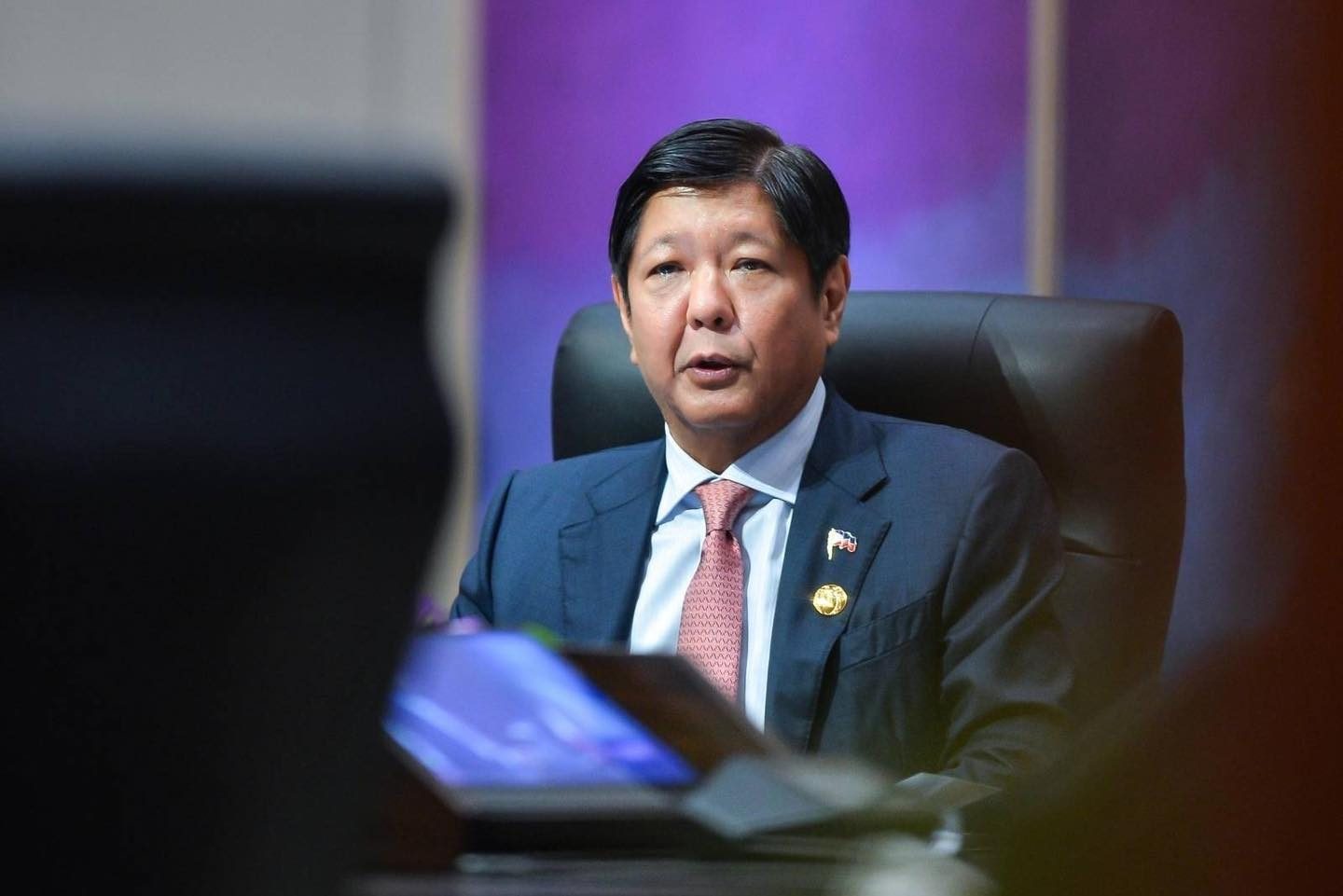
MANILA, Philippines – President Ferdinand Marcos Jr. has issued a series of proclamations granting amnesty to rebels, Malacañang announced on Friday, November 24.
Under Proclamation No. 403, Marcos granted amnesty to members of the Rebolusyonaryong Partido Manggagawa ng Pilipinas/ Revolutionary Proletarian Army/Alex Boncayao Brigade (RPMP-RPA-ABB) “who have committed crimes punishable under the Revised Penal Code and special penal laws, specifically those committed crimes in pursuit of their political beliefs, whether punishable under the Revised Penal Code or special penal laws.”
Under Proclamation No. 404, amnesty is granted to former members of the Communist Party of the Philippines-New People’s Army-National Democratic Front (CPP-NPA-NDF) or their front organizations who have committed crimes punishable under the RPC and Special Penal laws in furtherance of their political beliefs.
These crimes include, but are not limited to rebellion or insurrection; conspiracy and proposal to commit rebellion or insurrection; disloyalty of public officers or employees; inciting to rebellion or insurrection; sedition; conspiracy to commit sedition; and inciting to sedition.
The offenses also include illegal assembly; illegal association; direct assault; indirect assault; resistance and disobedience to a person in authority or the agents of such person; tumults and other disturbances of public order; unlawful use of means of publication and unlawful utterances; alarms and scandals; illegal possession of firearms, ammunition or explosives, provided that these crimes or offense were committed in furtherance of, incident to, or in connection with the crimes of rebellion or insurrection.
“Also covered are those charged, detained or convicted of common crimes but who can establish by substantial evidence that they have actually committed said crimes in pursuit of political beliefs,” Malacañang said, referring to Proclamation 404.
Proclamation 405 and Proclamation 406 grants amnesty to members of the Moro Islamic Liberation Front (MILF) and Moro National Liberation Front (MNLF), respectively, who have committed crimes punishable under the RPC and Special Penal Laws to advance to political their beliefs.
Malacañang said that MILF and MNLF members who had been detained, charged, or convicted for such acts or omissions “may file an application for amnesty; provided that the crime for which amnesty may be granted must have been committed prior to the issuance of the Proclamation.”
Malacañang said for the members of the RPMP-RPA-ABB and the CPP-NPA-NDF, the amnesty does not cover those who have committed the following crimes: kidnap for ransom, massacre, rape, terrorism, crimes committed against chastity as defined in the Revised Penal Code, crimes committed for personal ends, violation of Republic Act (RA) No. 9165 or the Comprehensive Dangerous Drugs Act of 2002, grave violations of the Geneva Convention of 1949, and genocide, crimes against humanity, war crimes, torture, enforced disappearances, and other gross violations of human rights.
On Friday, Malacañang also announced the signing of Executive Order (EO) No. 47, which amended the EO No. 125, series of 2021 or the creation of the National Amnesty Commission (NAC). Malacañang said that EO 47 amends and updatea the functions of the NAC to cater to the amnesty applications under the amnesty proclamations.
“There is hereby created the National Amnesty Commission, hereinafter referred to as the Commission, which shall be primarily tasked with receiving and processing applications for amnesty and determining whether the applicants are entitled to amnesty under Proclamation Nos. 403, 404, 405 and 406,” said EO 47 read.
The NAC will continue to exist and will be only dissolved upon the completion of its mandate “or as may be determined by the President,” Malacañang said,
The 1987 Constitution has a specific provision that bestows the President the power to grant amnesty Under Section 19, article VII of the Constitution, the chief executive can “grant amnesty with the concurrence of a majority of all the Members of the Congress.”
By issuing a proclamation, a Philippine president can announce amnesty – or forgiveness of a person’s criminal action – and may specify the parameters of the amnesty, including its coverage and effects.
Past presidents have also issued amnesty proclamations to enhance the country’s peace process.
A SONA promise
In his second State of the Nation Address (SONA) in July, Marcos promised to grant amnesty to rebels who will surrender to the government. The President said then it was to address the root cause of the armed conflict in the countryside, and that amnesty is needed to complete the reintegration process of these rebels.
The family of the sitting president shares a tragic past with rebels. Marcos’ father, the late dictator Ferdinand E. Marcos, is dubbed the “best recruiter” of rebels.
A Human Rights Watch 1990 report titled, “The Philippines: Violations of the laws of war by both sides,” deemed Marcos Sr. as the greatest recruiter of the NPA. This was because the number of armed rebels grew to around 20,000, between 1984 and 1986, or during his watch.
During the early days of Marcos’ term, the National Task Force to End Local Communist Armed Conflict (NTF-ELCAC) said it will not recommend restarting peace talks with the communist rebels.
National Security Adviser Eduardo Año said the President had even ordered the NTF-ELCAC to continue the anti-insurgency campaign without let-up. But despite these, the National Democratic Front of the Philippines said in June that it remained open to the possibility of resuming peace talks under the current administration. – Rappler.com
Add a comment
How does this make you feel?
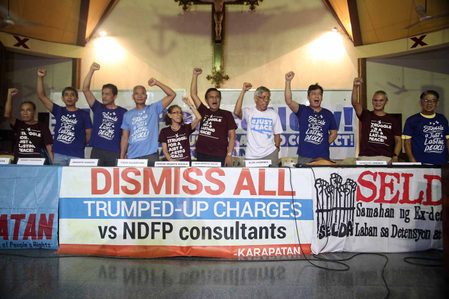
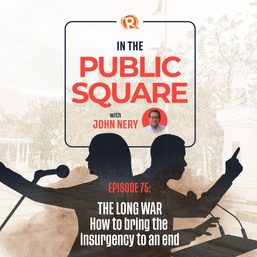
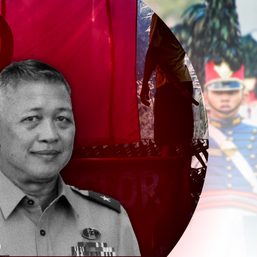
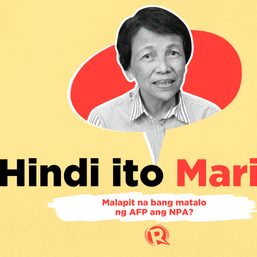
![[OPINION] The CPP-NPA’s 3rd Rectification Movement is bad news to the peace process](https://www.rappler.com/tachyon/2024/01/tl-cpp-npa-peace-talk-rectification.jpg?resize=257%2C257&crop=366px%2C0px%2C1080px%2C1080px)
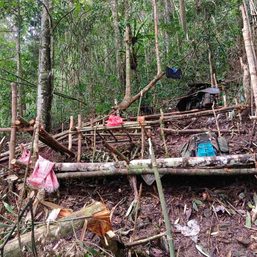
![[In This Economy] Marcos’ POGO ban is popular, but will it work?](https://www.rappler.com/tachyon/2024/07/thought-leaders-marcos-pogo-ban.jpg?resize=257%2C257&crop=255px%2C0px%2C720px%2C720px)
![[Rappler Investigates] POGOs no-go as Typhoon Carina exits](https://www.rappler.com/tachyon/2024/07/newsletter-graphics-carina-pogo.jpg?resize=257%2C257&crop=424px%2C0px%2C1080px%2C1080px)






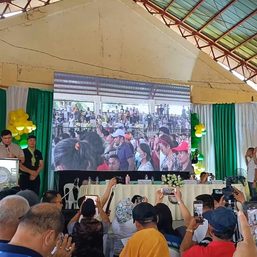
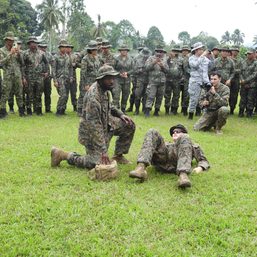

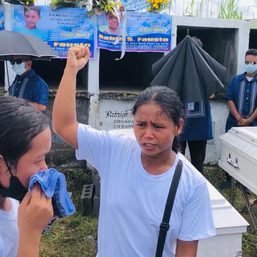



There are no comments yet. Add your comment to start the conversation.